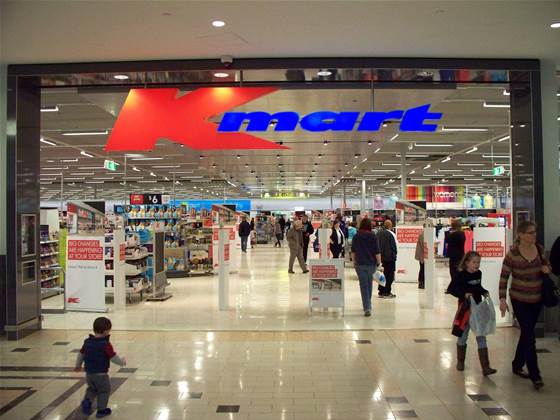Kmart Australia has stood up a consent-as-a-sevice platform internally to collect and manage customer consent around use of data for personalisation, advertising, analytics and future applications.

The retailer worked with Deloitte Digital and Tealium on the "Konsent@Kmart" centralised consent management solution, which is now in production.
Kmart is currently in a phase of work “where we're looking to when we're going to launch the actual frontend experience and what our future looks like,” marketing technology architect Photi Orfanidis told Tealium’s digital velocity APAC 2022 conference.
The retailer intends to give customers full control over their preferences and seek explicit consent for how information about the customer can be used.
Orfanidis is the first martech architect in a “relatively new” marketing and loyalty technology function at Kmart Australia.
“What I'm doing is bridging the gap between marketing and technology to create seamless customer experiences,” he said.
“We're building Kmart's first dedicated capability, both the people and the technology, to accelerate the realisation of what we're doing in the digital engagement space.”
Shifting customer expectations “meant that customers expected greater transparency, greater convenience and a seamless experience from us,” Orfanidis said.
He said that Kmart was determined to adopt a privacy-first approach to the way it collected and used customer data, and “will always ask for” consent.
However, he noted the retailer’s previous approach meant that “each customer touchpoint had a different form of consent and different preferences, and a different method of collecting consent”.
“We kicked off this project with three key goals,” Orfanidis said.
“We looked at building privacy and trust into every one of our communications, leveraging a privacy by design approach.
“We wanted to truly unlock our first party data - that was really important to us.
“And we also were future-proofing our solution so that we were prepared for a change in any regulation that might happen over the next 12 to 24 months, so we've created a consent model which can preemptively address any change in data protection regulations.”
“The only way we could create consistency across the different channels inside of Kmart was to make consent an internal service, so that any of the Kmart technologists could go to the consent centre, if you want to call it that, and use the data around what you have told Kmart that they should do with your data,” Deloitte Digital principal Frederik De Keukelaere added.
So we brought different consent states from different platforms - from emails, from online and so on - together into one place to start that centralisation, and to offer that consent-as-a-service.”
De Keukelaere also said the intention was to give customers “the ability and the capability to say how they want to be communicated with, while … we give that trusted feeling to the customer that we're going to treat their data in the right ways”.
Consent is collected through cookie consent popups as well as data preference management options that authenticated (logged in) customers can access.
Complicating the project, however, is that Kmart had to deal with all the different customer consents it had already gathered.
“Kmart has the additional complexity that they had a whole lot of data sources already where they had some forms of consent and that was living in their Sophia data platform,” De Keukelaere said.
Sophia is the codename for a data platform based on Snowflake and Power BI technology that was revealed last year.
De Keukelaere said that all consents - new and existing - are being drawn into the central Tealium-powered consent management system.
Orfanidis said that codifying the consent logic in the system had proven to be "a little bit complex to implement", owing to Kmart not just using a "blanket opt-in or opt-out" but instead seeking specific consents for actions, and categorising consent in different ways.
Future use cases for customer data being contemplated include “app integrations; granular preferences so [we] know how often you would like to receive communications; [and] … even things like contextual triggers - so you could walk through the doors of our store and if you've given us consent for location services, maybe we'll let you know about you've abandoned your cart onsite and the products [in it are] available in the store - things like that,” Orfanidis added.


_(20).jpg&h=140&w=231&c=1&s=0)


_(22).jpg&h=140&w=231&c=1&s=0)



_(26).jpg&w=100&c=1&s=0)

 iTnews Executive Retreat - Security Leaders Edition
iTnews Executive Retreat - Security Leaders Edition












_(1).jpg&h=140&w=231&c=1&s=0)



